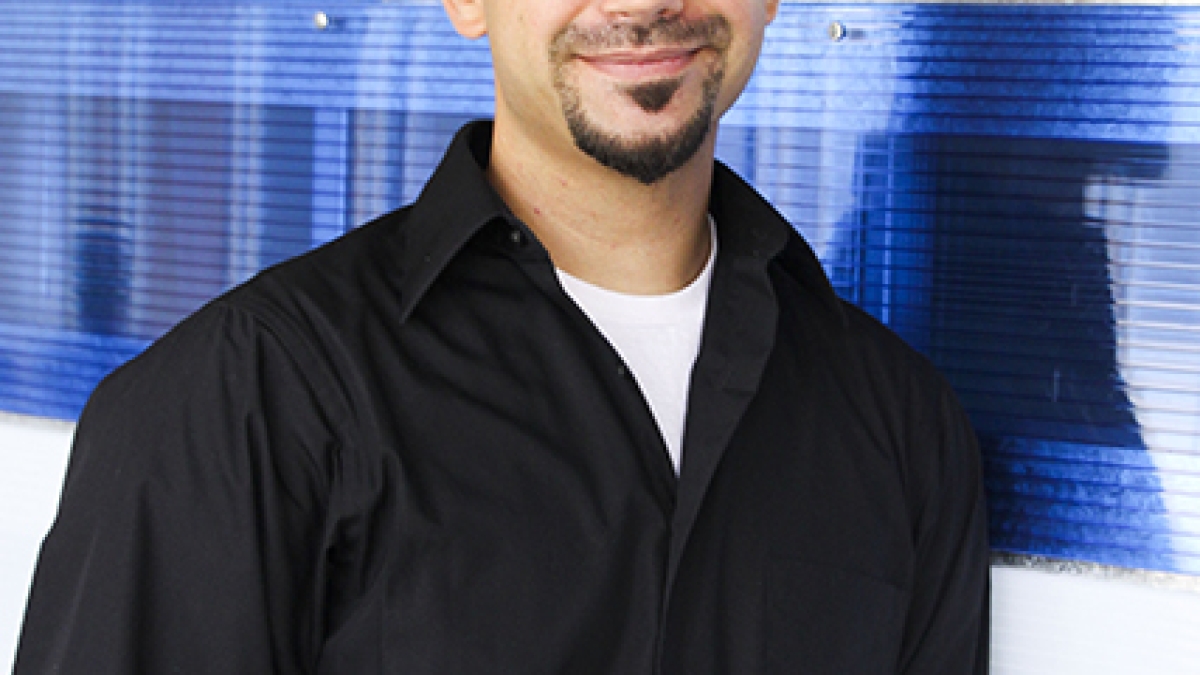Smart water use ideas earn engineering student research award

Arizona State University civil engineering graduate student Tom Volo has won the 2013 Central Arizona Project (CAP) Award for Water Research. The award recognizes excellence in graduate or undergraduate research that addresses water issues facing central and southern Arizona and the Colorado River.
The CAP manages the largest single resource of renewable water supplies in the state as the steward of central and southern Arizona’s Colorado River water entitlement. Its operations bring about 1.5 million acre-feet of Colorado River water to Pima, Pinal and Maricopa counties each year.
Volo’s award-winning research paper, “Modeling Soil Moisture, Water Partitioning, and Plant Stress under Irrigated Conditions in Desert Urban Areas,” outlines a hydrological model he devised to determine the best irrigation practices for native and exotic landscapes in semi-arid cities such as Phoenix.
Based on data from soil moisture sensors, Volo’s model can be used to study the water balance and plant stress in different urban landscapes as a guide to determining the best ways to irrigate, when to irrigate and how much water to use to support specific urban landscapes.
“My research focuses on how we can use water in smarter ways and how we can gain a better understanding of what happens to the water that we use everyday to take care of our urban environment,” Volo says.
His paper was selected by a committee of CAP Board of Directors members, CAP staff members and CAP water consumers. Volo’s work could have an impact on methods the CAP employs to reduce the demand for outdoor water use.
In addition to aiding water suppliers, Volo says, “This model could be useful to landscape managers and anyone whose role it is to inform homeowners about efficient water use.”
The award earned Volo a $1,000 prize and the opportunity to present his research at the Arizona Hydrological Society Annual Symposium in Tucson, Sept. 18-21.
His winning paper was the basis for a thesis that helped him recently earn a master’s degree, and will be the starting point for advanced research he intends to pursue as he begins doctoral studies in engineering this fall.
Volo completed his master’s of science in civil and environmental engineering under the direction of Enrique Vivoni, an associate professor in the School of Sustainable Engineering and the Built Environment, one of ASU’s Ira A. Fulton Schools of Engineering, and in the School of Earth and Space Exploration in ASU’s College of Liberal Arts and Sciences.
“Tom’s research is focused on a poorly understood part of the built environment in Phoenix – how much water is consumed through outdoor irrigation and what is its ultimate fate,” Vivoni says. ”Advances in quantifying this anthropogenic flux will allow us to better manage our water resources through landscape designs and conservation measures, while accounting for the benefits provided by outdoor water use.”
Volo’s academic and research performance – including a 4.0 grade point average – has earned him support for his doctoral studies through his selection as a Fulton Engineering Schools’ Dean’s Fellow. Among other benefits, the fellowship provides Volo funding for tuition and the opportunity to meet each semester with the dean of the Fulton Engineering Schools.
As he progresses toward his doctoral degree, Volo says he hopes to put his research into action outside of the lab and classroom, a goal his CAP award may help him achieve.
Volo began his schooling in engineering studies in 2008 after earning an undergraduate degree with majors in accounting and music from the College of William and Mary in Virginia.
“I was initially drawn to accounting because I had solid math skills, but I always felt that I had other skills that weren’t being used,” he says.
He came to see engineering as a good way to blend the varied skills that attracted him to accounting and music. “I liked the analytical side of accounting, but the interpersonal and public side of studying and performing music,” Volo says.
He chose to study hydrology because water is “often overlooked despite being one of our most important resources.”
The country has an aging water infrastructure and water policies that need to be updated, Volo says, and he wants to be one of the “new crop of water thinkers” leading the way in facing these challenges.
Written by Rosie Gochnour and Joe Kullman